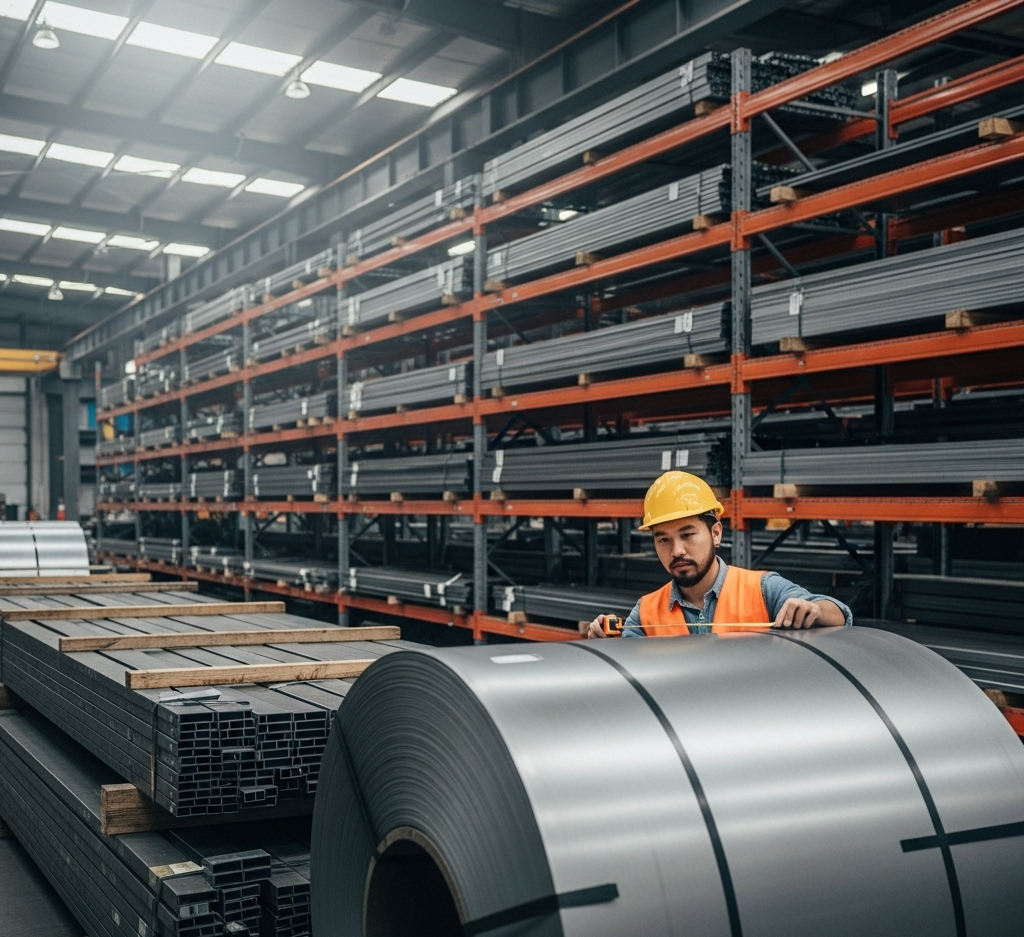
When sourcing metal for manufacturing, construction, or other industrial applications, businesses face a critical decision: should they partner with global or domestic suppliers? Each option has its own set of advantages and trade-offs, particularly when it comes to cost, quality, and lead time. In this blog post, we’ll explore these factors to help you make an informed decision.
Domestic suppliers often have higher upfront costs due to stricter labor regulations, higher wages, and environmental compliance requirements in countries like the United States or Canada. However, these costs can be offset by:
Lower shipping costs: Proximity reduces transportation expenses, especially for heavy materials like steel or aluminum.
Fewer tariffs and duties: Domestic sourcing avoids import tariffs, which can significantly inflate costs for global suppliers.
Stable pricing: Domestic suppliers are less affected by currency fluctuations or international trade policies.
Global suppliers, often based in countries like China, India, or Mexico, typically offer lower material costs due to economies of scale, lower labor costs, and less stringent regulations. However, consider these hidden costs:
Shipping and logistics: International shipping, especially for bulky metals, can be expensive and subject to delays.
Tariffs and taxes: Import duties and trade regulations can increase costs, especially in volatile trade environments.
Currency risks: Exchange rate fluctuations can impact the final cost of materials.
Takeaway: Domestic suppliers may have higher base prices but lower total landed costs, while global suppliers can offer savings if logistics and tariffs are managed effectively.
Domestic suppliers often adhere to rigorous quality standards, such as ISO certifications or industry-specific regulations (e.g., ASTM or AISI standards in the U.S.). This ensures:
Consistency: Materials are more likely to meet precise specifications, reducing defects and rework.
Traceability: Domestic suppliers typically provide detailed documentation, ensuring transparency in sourcing and production processes.
Regulatory compliance: Materials are more likely to align with local environmental and safety standards.
The quality of materials from global suppliers can vary widely. While many international suppliers meet global standards, others may cut corners to reduce costs. Key considerations include:
Variability: Some global suppliers may struggle with consistent quality, leading to potential issues in production.
Certifications: Verify that global suppliers adhere to internationally recognized standards, as certifications may not always align with domestic requirements.
Inspection costs: Businesses may need to invest in third-party inspections to ensure quality, adding to the overall cost.
Takeaway: Domestic suppliers often provide more consistent quality and compliance, while global suppliers require thorough vetting to ensure standards are met.
Proximity is a significant advantage for domestic suppliers, offering:
Faster delivery: Shorter shipping distances mean quicker turnaround times, which is critical for just-in-time manufacturing.
Flexibility: Domestic suppliers can often accommodate rush orders or last-minute changes more easily.
Lower risk of delays: Domestic supply chains are less susceptible to international disruptions like port congestion or customs delays.
Global suppliers often face longer lead times due to:
Shipping delays: Ocean freight can take weeks, and unexpected disruptions (e.g., weather, labor strikes) can extend timelines.
Customs processing: Clearing customs can add days or weeks, especially if documentation is incomplete.
Communication barriers: Time zone differences and language barriers can slow down coordination and issue resolution.
Takeaway: Domestic suppliers excel in speed and flexibility, while global suppliers require careful planning to mitigate longer lead times.
Supply Chain Resilience: Domestic suppliers are less vulnerable to global disruptions like geopolitical tensions or pandemics, which can halt international shipping.
Sustainability: Domestic suppliers may align better with sustainability goals due to stricter environmental regulations, while some global suppliers may have less oversight.
Relationship Building: Working with domestic suppliers can foster stronger, more collaborative relationships due to proximity and shared business practices.
Choosing between global and domestic metal suppliers depends on your business’s priorities. If cost is the primary concern and you have robust quality control measures, global suppliers may offer significant savings. However, if quality, speed, and supply chain reliability are critical, domestic suppliers are often the better choice. A hybrid approach—sourcing some materials domestically and others globally—can also balance cost and efficiency.
Before deciding, evaluate your project’s specific needs, conduct thorough supplier audits, and consider long-term partnerships to optimize cost, quality, and lead time. By weighing these factors carefully, you can build a supply chain that supports your business goals.
© 2025 Lasso Supply Chain Software LLC
Get instant access to our report on the Top Procurement Trends of 2025.
Get instant access to our report on the Top Procurement Trends of 2025 by filling out the form below.
